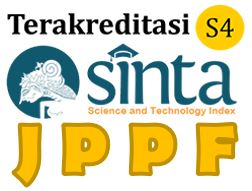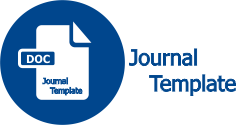Cognitive Conflict-Based Learning Materials Integrated with Augmented Reality: Is It Practical in Learning Global Warming?
DOI:
https://doi.org/10.24036/jppf.v11i1.2Keywords:
Cognitive Conflict, , Augmented Reality, Practicality, Teaching Materials, MisconceptionAbstract
The low understanding of concepts in physics learning is still a common problem, including in the topic of global warming. The use of technology such as augmented reality that has the potential to improve understanding of physics concepts is still rarely applied. One way to overcome this problem is to develop physics teaching materials based on cognitive conflict integrated with augmented reality in global warming learning. This study aims to test the level of practicality of global warming teaching materials products based on cognitive conflict. This study reports the development stages in the Plomp model, especially at the small group evaluation stage. The instrument used in this study was a practicality questionnaire analysed using a percentage technique. The four aspects tested in this study were aspects of ease of use, attractiveness, efficiency and benefits with an average for each aspect in sequence of 91.66; 94.91; 92.78; and 94.99 with very practical criteria. And the average value of the results of the practicality test of the teaching material product reached 93.58 which was very practical. Global warming teaching materials based on cognitive conflict integrated with augmented reality are practical for students in terms of ease of use, attractiveness, benefits and efficiency.
Downloads
References
Ali, Z., Wahyuningsih, D., & Supurwoko, S. (2021). Pengembangan Media Pembelajaran Fisika SMA Augmented Reality Video Berbasis Android pada Materi Pemanasan Global di Kelas XI SMA N
1 Gemolong. Jurnal Materi Dan Pembelajaran Fisika, 11(1), 33. https://doi.org/10.20961/jmpf.v11i1.47826
Badan Pengembangan dan Pembinaan Bahasa, K. P. (2016). KBBI Daring [KBBI Online].
Https://Kbbi.Kemdikbud.Go.Id/Entri/Praktis.
Buchner, J., Buntins, K., & Kerres, M. (2022). The impact of augmented reality on cognitive load and performance: A systematic review. Journal of Computer Assisted Learning, 38(1), 285–303. https://doi.org/10.1111/jcal.12617
Darwis, R., & Hardiansyah, muhammad rizal. (2022). Analisis Miskonsepsi Calon Guru IPA Terpadu pada Materi Pamanasan Global Menggunakan Certainty of Response Index. Jurnal Pendidikan Mipa, 12(4), 1023–1030. https://doi.org/10.37630/jpm.v12i4.732
Dedynggego, Mohammad, & Affan, M. (2015). Perancangan Media Pembelajaran Interaktif 3D Tata Surya Menggunakan Teknologi Augmented Reality Untuk Siswa Kelas 6 Sekolah Dasar Sangira. Jurnal Elektronik Sistem Informasi Dan Komputer, 1(2), 45–60. http://jesik.web.id/index.php/jesik/article/view/13
Fadhilah, A., Mufit, F., & Asrizal. (2020). Analisis Validitas dan Praktikalitas Lembar Kerja Siswa Berbasis Konflik Pada Materi Gerak Lurus dan Gerak Parabola. Pillar of Physics Education, 13(1), 57–64.
Faresta, R. A., Kosim, & Gunawan. (2020). Pengembangan Modul Pembelajaran Fisika Berbasis Pendekatan Konflik Kognitif. Indonesian Journal of Applied Science and Technology, 1(3), 88– 95.
Hanum, S. A., Mufit, F., & Asrizal. (2019). Pengembangan LKS Berbasis Konflik Kognitif Terintegrasi Literasi Baru pada Materi Fluida Untuk Siswa Kelas XI SMA [Development of Conflict-Based Cognitive Conflict-Based New Literacy on Fluid Materials for Class XI High School Students]. Physics Education, 12(4), 793–800. http://103.216.87.80/students/index.php/pfis/article/view/7606/3678
Hayati, M., & Mufit, F. (2023). DESAIN BAHAN AJAR BERBASIS KONFLIK KOGNITIF TERINTEGRASI AUGMENTED REALITY PADA MATERI PEMANASAN GLOBAL UNTUK
MENINGKATKAN PEMAHAMAN KONSEP SISWA SMA/MA. Universitas Negeri Padang.
Isra, R. A., & Mufit, F. (2023). Students’ conceptual understanding and causes of misconceptions on Newton’s Law. International Journal of Evaluation and Research in Education, 12(4), 1914– 1924. https://doi.org/10.11591/ijere.v12i4.25568
Marheni, W., Lestari, P. W., Sababalat, L., & Novalia, L. (2025). Perencanaan dan Pelaksanaan Pembelajaran yang Efektif. Student Scientific Creativity Journal, 01(1), 48–56. https://doi.org/https://doi.org/10.55606/sscj-amik.v3i1.4650
Mufit, F. (2018). Model Pembelajaran Berbasis Konflik Kognitif (PbKK) untuk Meningkatkan Pemahaman Konsep dan Meremediasi Miskonsepsi. 37. https://osf.io/preprints/inarxiv/zqvrd/
Mufit, F., Asrizal, Hanum, S. A., & Fadhilah, A. (2020). Preliminary research in the development of physics teaching materials that integrate new literacy and disaster literacy. Journal of Physics: Conference Series, 1481(1). https://doi.org/10.1088/1742-6596/1481/1/012041
Mufit, F., Asrizal, Puspitasari, R., & Annisa. (2022). Cognitive Conflict-Based E-Book With Real Experiment Video Analysis Integration To Enhance Conceptual Understanding of Motion Kinematics. Jurnal Pendidikan IPA Indonesia, 11(4), 626–639. https://doi.org/10.15294/jpii.v11i4.39333
Mufit, F., dan Fauzan, A. 2019. Buku Model Pembelajaran Berbasis Kognitif. Cetakan Pertama. Edited by Y. N. Lasboi, A. Wibowo, and C. I. Gunawan. Malang: CV IRDH.
Mufit, F., Dewi, W. S., Riyasni, S., & Dhanil, M. (2025). Augmented Reality with A Cognitive Conflict Model and STEM Integration on Newton ’ s Universal Law of Gravitation : Does Practicing
Mufit, F., & Dhanil, M. (2024). Effectiveness of Augmented Reality with Cognitive Conflict Model to Improve Scientific Literacy of Static Fluid Material. International Journal of Information and Education Technology, 14(9), 1199–1207. https://doi.org/10.18178/ijiet.2024.14.9.2149
Mufit, F., Festiyed, Fauzan, A., & Lufri. (2023). The Effect of Cognitive Conflict-Based Learning (CCBL) Model on Remediation of Misconceptions. Journal of Turkish Science Education, 20(1), 26–49. https://doi.org/10.36681/tused.2023.003
Mufit, F., & Fitri, A. D. (2022). The Analysis of Experiment Video on Cognitive Conflict-Based Teaching Materials to Enhance Momentum-Impulse Concepts Understanding. Jurnal Penelitian & Pengembangan Pendidikan Fisika, 8(2), 293–304. https://doi.org/10.21009/1.08211
Mufit, F., Hendriyani, Y., & Dhanil, M. (2024). Design immersive virtual reality (IVR) with cognitive conflict to support practical learning of quantum physics. Journal of Turkish Science Education, 21(2), 369–388. https://doi.org/10.36681/tused.2024.020
Nieveen, N. (2019). Prototyping to Reach Quality. Kluwer Academic.
Plomp, T. (2013). Educational Design Research Educational Design Research. Netherlands Institute for Curriculum Development: SLO, 1–206. http://www.eric.ed.gov/ERICWebPortal/recordDetail?accno=EJ815766
Pramono, A., & Mufit, F. (2022). Design of Cognitive Conflict-Based Interactive Multimedia Using Adobe Animate CC 2019 On Global Warming Materials. Jurnal Geliga Sains: Jurnal Pendidikan Fisika, 10(2), 89. https://doi.org/10.31258/jgs.10.2.89-100
Puspitasari, R., Mufit, F., & Asrizal, A. (2022). Kepraktisan E-Book Berbasis Konflik Kognitif Menginterasikan Real Experiment Vidio Analysis Untuk Meningkatkan Pemahaman Konsep Siswa. Jurnal Penelitian Pembelajaran Fisika, 8(1), 27.
https://doi.org/10.24036/jppf.v8i1.115724
Riduwan. (2019). Belajar Mudah Penelitian untuk Guru-Karyawan dan Penelitian Pemula. Bandung : AlfabetaAbdullah, M. (2016). Buku Fisika Dasar I. Institut Teknologi Bandung, 1-50.
Rohmaniyah, I. A., Jurusan, M., Fisika, P., Negeri, U., Yogyakarta, U. N., Reality, A., & Global, P. (2021). Pengembangan Media Pembelajaran Fisika Berbasis Augmented Reality pada Materi Pemanasan Global untuk Meningkatkan Hasil Belajar Peserta Didik Kelas XI SMA / MA The Development of Augmented Reality-Based Physics Learning Media on Global Warming Materials
t. 1–6.
Rosalina Rawa, N., Sutawidjaja, A., & Sudirman. (2016). Pengembangan Perangkat Pembelajaran Berbasis Model Learning Cycle-7E Pada Materi Trigonometri Untuk Meningkatkan Kemampuan Koneksi Matematis Siswa. Jurnal Pendidikan: Teori, Penelitian, Dan Pengembangan, 1(6), 1042– 1055.
Zuwita, N., & Mufit, F. (2023). The Effectiveness of Cognitive Conflict-Based Learning Models Using Interactive Multimedia. Pillar of Physics Education, 15(1), 120–126.
Downloads
Published
Issue
Section
License
Copyright (c) 2025 Salsabilla Mulya Putri, Fatni Mufit, Hidayati, Fuja Novitra (Author)

This work is licensed under a Creative Commons Attribution 4.0 International License.





